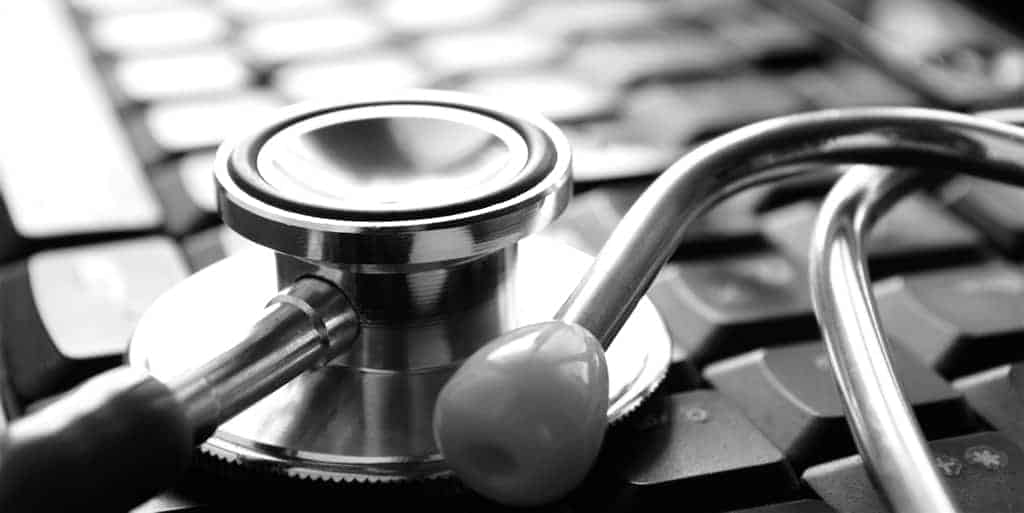The healthcare industry has traditionally been more reluctant than other market sectors to welcome change. Until very recently, many doctors’ offices were still using only paper charts and records. In addition, many healthcare facilities have resisted using technology to protect sensitive patient information, opting instead for antiquated and insecure methods.
Several factors are causing a shift in this mindset and influencing the adoption of cutting-edge technology in many areas of healthcare. One is the overwhelming effects of the COVID-19 pandemic. The virus has resulted in significant shifts across all aspects of society and put a tremendous strain on the healthcare industry. This strain has spurred the adoption of some of the technological solutions available to healthcare practitioners and enterprises.
The maturity of cloud solutions is another factor enabling companies in the healthcare industry to take advantage of technology in new and innovative ways.
In this article, we will discuss how the offerings of public cloud providers are making it possible for healthcare organizations of any size to protect their patients’ records and comply with HIPAA regulatory requirements.
Complying with HIPAA Privacy and Security Regulations
All businesses operating in the healthcare industry in the United States are subject to the Health Insurance Portability and Accountability Act of 1996 (HIPAA) guidelines regarding the privacy and security of protected health information (PHI). This includes electronically protected health information (ePHI) stored on computer systems and databases. PHI and ePHI are defined as any piece of information in an individual’s medical record to identify the patient uniquely.
In particular, the HIPAA Privacy and Security Rules define the safeguards that must be in place to protect PHI and ePHI. In addition, HIPAA guidelines define two types of organizations that need to comply with these rules. Both CEs and BAs need to adhere to the standards laid out in the HIPAA Privacy and Security Rules. Following is an overview of what these rules require:
A covered entity (CE) can be a health care provider, health plan, or a health care clearinghouse. Everything from small doctor’s offices to large metropolitan hospital systems is considered covered entities.
A business associate (BA) is a person or entity that performs certain functions or activities for a covered entity that involves processing PHI or ePHI. For example, third-party providers of information technology (IT) services fall into the category of business associates.
HIPAA Privacy Rule
The HIPAA Privacy Rule applies to all forms of PHI regardless of how it was created or stored. It was enacted to protect the confidentiality of patients’ healthcare information and allow it to be accessed when necessary. It regulates who can access PHI and when it can be used and shared.
Eighteen characteristics of PHI are defined in the Privacy Rule that includes these patient identifiers:
- Names;
- Dates;
- Telephone numbers;
- Geographic data;
- Social Security numbers;
- Email addresses;
- Medical record numbers;
- Account numbers.
These identifiers are what must be kept private and secure to ensure HIPAA compliance.
HIPAA Security Rule
The HIPAA Security Rule only applies to ePHI that is stored, processed, and transmitted electronically. Its general security guidelines require CEs and BAs to:
- Ensure the confidentiality, integrity, and availability of all ePHI they create, receive, maintain or transmit;
- Identify and protect against threats to the security or integrity of ePHI;
- Protect against potential security breaches;
- Ensure compliance with the rules by their employees.
To ensure compliance with the general security standards, the Security Rule outlines three categories of safeguards that must be implemented by the CE or BA responsible for processing ePHI.
Administrative safeguards define how covered entities assess risk and implement policies to ensure employees conform to the HIPAA Security Rule. It provides for risk analysis and the development of policies to close security gaps. Employee training on HIPAA compliance is part of these safeguards.
Physical safeguards address controls to protect the physical security of the offices and devices that store ePHI. It includes measures to control access to facilities such as alarm and security systems. In addition, policies and procedures must be in place to address the security of workstations and electronic devices holding ePHI.
Technical safeguards refer to the procedures in place to protect ePHI residing on computer systems. They consist of access, audit, and data integrity controls. Technical safeguards also address the security of ePHI transmitted over electronic networks.
How to Comply with HIPAA Regulations
Many aspects of the HIPAA rules need to be maintained for a CE to achieve compliance. However, it can quickly become extremely complicated to ensure all safeguards are implemented. In many cases, there are no dedicated IT resources available to perform these duties.
An effective strategy for organizations that do not have the in-house capabilities to maintain HIPAA compliance is to engage a qualified third-party cloud provider. Working with a cloud provider as a business associate, covered entities can benefit from housing their applications on a HIPAA-compliant infrastructure.
Insist on a provider that will sign a business associate agreement defining their responsibilities regarding the CE’s ePHI. Here are some important characteristics and features to look for when selecting a cloud vendor to furnish a HIPAA-compliant infrastructure. The business associate needs to provide:
- A private and segmented infrastructure;
- Encryption of all ePHI while at rest, in use, and during transmission;
- Intrusion protection to keep malware out of the infrastructure;
- Encrypted virtual private networks;
- Managed firewall to limit incoming traffic to authorized entities;
- HIPAA-compliant storage;
- Onsite and offsite backups that are fully encrypted;
- Disaster recovery capabilities to maintain the availability of critical systems.
Cloud vendors that can provide these features offer businesses in the healthcare industry a streamlined roadmap to a HIPAA-compliant infrastructure. They address the technical and physical safeguards required to maintain compliance.
How Can Cloud Security for Healthcare Improve for Patients
In addition to providing a viable method of maintaining a HIPAA-compliant infrastructure, cloud security contributes to multiple advancements in how healthcare is accessed and delivered. The compliant infrastructure furnished by the cloud can be used to host a wide variety of healthcare-focused applications. The patient community and the healthcare industry both benefit from these improvements.
Telemedicine and Remote Patient Consultations
The COVID-19 pandemic has been responsible for increasing the speed with which patients and practitioners have adopted telemedicine and remote doctor visits. Virtual visits using computers or mobile devices have made it possible to see more patients while maintaining social distancing guidelines. Patients and providers have widely adopted these new capabilities and promise to be commonly used in post-pandemic healthcare.
Telemedicine enables individuals located in geographically remote areas to meet with healthcare providers in real-time. This expands the scope of healthcare in rural areas and opens the door to transnational consultations with specialists worldwide. In addition, the time and cost of travel for a simple consultation can be eliminated by telemedicine solutions.
Cloud-Based Patient Portals
Cloud-based portals make medical records and information more readily available to patients and practitioners. Cloud computing democratizes patient data and enables individuals to make informed decisions regarding their diagnosis and treatment.
Collaboration and Interoperability
Data stored in the cloud is easily transferable between healthcare providers or institutions, leading to enhanced collaboration, better interoperability, and improved patient outcomes. For example, doctors can assist remotely located specialists and quickly exchange patient data for collaborative diagnoses to address unusual situations.
Collaboration across healthcare providers can also help identify trends that impact society’s well-being. The availability of multiple databases containing patient data helps identify trends that can inform public health policymakers. This type of information has become indispensable in the fight against COVID-19.
Advanced Analytic and Diagnostic Capabilities
Cloud providers make cutting-edge technologies like artificial intelligence and machine learning available to their customers. Many companies would not have access to these technologies’ advanced analytics and diagnostic power without the cloud. As a result, the healthcare industry can take full advantage of the technology available in the cloud to provide improved patient care and develop alternative therapies.
Analytics can be used to enhance personalized care plans and large-scale predictions of trends that may indicate new opportunities for healthcare providers. In addition, big data and connected Internet of Things medical devices supply plenty of raw materials for cloud analytical activities.
Lowered Costs
One of the attractions of the cloud for any business is the chance to lower costs through the use of on-demand computing resources. Healthcare facilities can quickly scale their infrastructure when necessary to address fluctuating demands without any upfront costs. Combined with the healthcare industry’s concerns about maintaining HIPAA compliance, lowered capital costs make the cloud a very appealing option.
Conclusion
Cloud computing can address many of the needs of companies opening in the healthcare industry. With the right provider, a HIPAA-compliant infrastructure is in scope for any size organization. The cloud also benefits patients and healthcare practitioners with a more readily available flow of information, telemedicine solutions, and access to innovative technologies. As the healthcare community adopts more cloud solutions, the advantages to providers and patients will continue to flourish.




